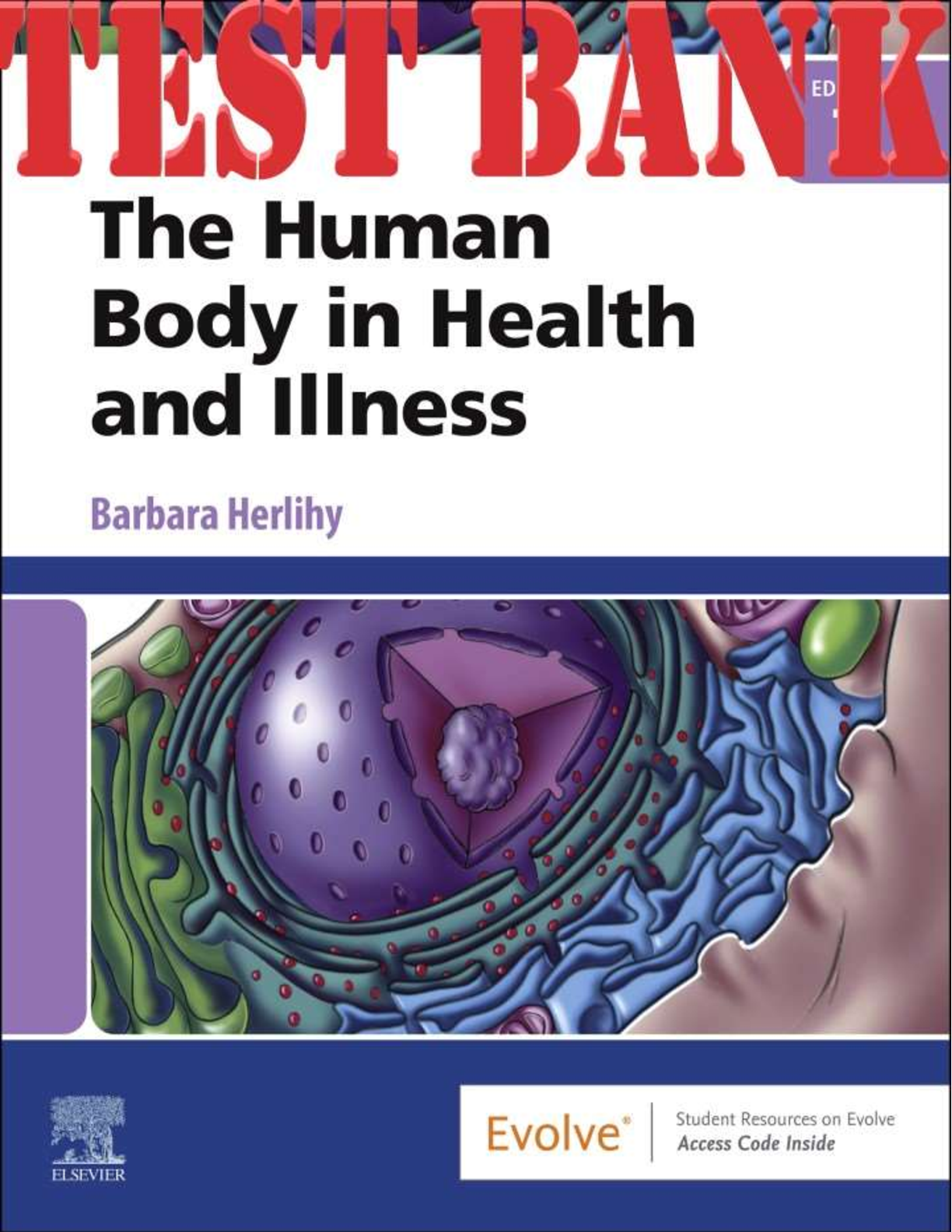healthcare > TEST BANKS > Test Bank For Handbook of Informatics for Nurses & Healthcare Professionals, 7th Edition by Toni L. (All)
Test Bank For Handbook of Informatics for Nurses & Healthcare Professionals, 7th Edition by Toni L. Hebda Melody Rose Kathleen Hunter Patricia Czar
Document Content and Description Below
Test Bank For Handbook of Informatics for Nurses & Healthcare Professionals, 7th Edition by Toni L. Hebda Melody Rose Kathleen Hunter Patricia Czar-1) Healthcare today should address the Quintuple Aim... . What of the following best demonstrates how healthcare information technology might be used to help address disparities in care? A) Collect data elements that could be used to identify vulnerable individuals B) Use collected data to identify vulnerable individuals C) Incorporate GPS locators into predictions D) A and B Answer: D Explanation: A) Many demographic and other relevant data elements are/or could easily be collect that could be used to identify vulnerable individuals. B) Collected data can be used and leveraged to identify vulnerable individuals. C) Location may be an indicator of risk but zip code alone does not indicate vulnerability. Other factors that include familial predisposition, occupational risks, economic level, personal health habits, living conditions, and community support all factor into determination of vulnerability. D) Both A and B together comprise the best response. Page Ref: 1-2 Cognitive Level: Applying QSEN Grad. Competencies: A3, B1 AACN Essen. Competencies: 8.1g,h; 8.2i; 8.3g 2) Which of the following best reflects benefits realized from the use of health information technology? A) Improved safety, improved efficiencies, decreased clinician documentation times B) Improved safety, improved efficiencies, improved charge capture, improved communication C) Improved safety, improved efficiencies, improved protection of personal health information D) Improved safety, improved efficiencies, significant reduction in costs for care, improved protection of patient information Answer: B Explanation: A) HIT can result in improved safety through measures such as positive patient identification and may improve efficiencies but clinician documentation burden is an issue seen with poorly designed and poorly used systems. B) HIT can result in improved safety through positive patient identification, alerts, and similar measures. HIT may improve some efficiencies such as improved charge capture and shortened revenue cycle and theoretically improves communication. C) HIT can result in improved safety and improved efficiencies in some respects but despite safeguards to protect patient health information it also increases vulnerabilities in some respects. D) Despite its promise to significantly reduce costs for care costs associated with the purchase and maintenance of HIT, among other U.S. issues have not resulted in significant reduction in costs for care. Page Ref: 1-2 Cognitive Level: Applying QSEN Grad. Competencies: A1,4; C1,5 AACN Essen. Competencies: 8.1j,k; 8.2 I; 8.3i; 8.4g 3) In which ways can health information technology support the learning health system? A) Incorporation of evidence-based practice and big data findings to provide care interventions that are proven to be effective B) Real-time analysis of data C) Integration of devices and the data that they collect to inform care decisions D) All of the above Answer: D Explanation: A) Big data findings supplement EBP often providing information and knowledge in a more timely fashion. B) Real-time analysis of data can be particularly useful when healthcare delivery systems and providers are facing challenges that are new to them as was seen with the emergence of a body of knowledge relative to the impact of COVID and most successful treatment modalities. C) Data streams from all relevant sources provide a more complete picture. D) A combination of research and big data findings from a myriad of sources that is analyzed in real time provides a quick turnaround to support, and further improve, care delivered. Page Ref: 3-4 Cognitive Level: Applying QSEN Grad. Competencies: A5; B8, 9, 11; C1, 2 AACN Essen. Competencies: 8.1g; 8.2f; 8.3j; 8.4f 4) Which of the following are considered necessary components to create a learning or informatics culture? Select all that apply. A) Standardized languages and terminologies B) Data in digital format C) Interoperability and data sharing D) Prerequisite information knowledge and skills Answer: A, B, C, D Explanation: A) Standardized languages and terminologies ensure that concepts maintain a uniform meaning across settings and the ability to generalize results. B) Data in digital format is conducive to electronic capture, storage, analysis, transmission, and re-use. C) In order to have value data must be shareable which is best attained when systems are interoperable. D) Computer, information, and (for the consumer), health literacy are foundational skills in the learning health system where data, information, and knowledge are constantly generated as a result of care processes as well as the integration of research findings to support best practices for patient care. Page Ref: 9-13 Cognitive Level: Knowledge QSEN Grad. Competencies: A5; B2, 11; C1, 4 AACN Essen. Competencies: 8.1g; 8.2i; 8.4g [Show More]
Last updated: 5 months ago
Preview 5 out of 174 pages

Loading document previews ...
Buy this document to get the full access instantly
Instant Download Access after purchase
Buy NowInstant download
We Accept:

Reviews( 0 )
$12.50
Can't find what you want? Try our AI powered Search
Document information
Connected school, study & course
About the document
Uploaded On
Feb 02, 2025
Number of pages
174
Written in
Additional information
This document has been written for:
Uploaded
Feb 02, 2025
Downloads
0
Views
21

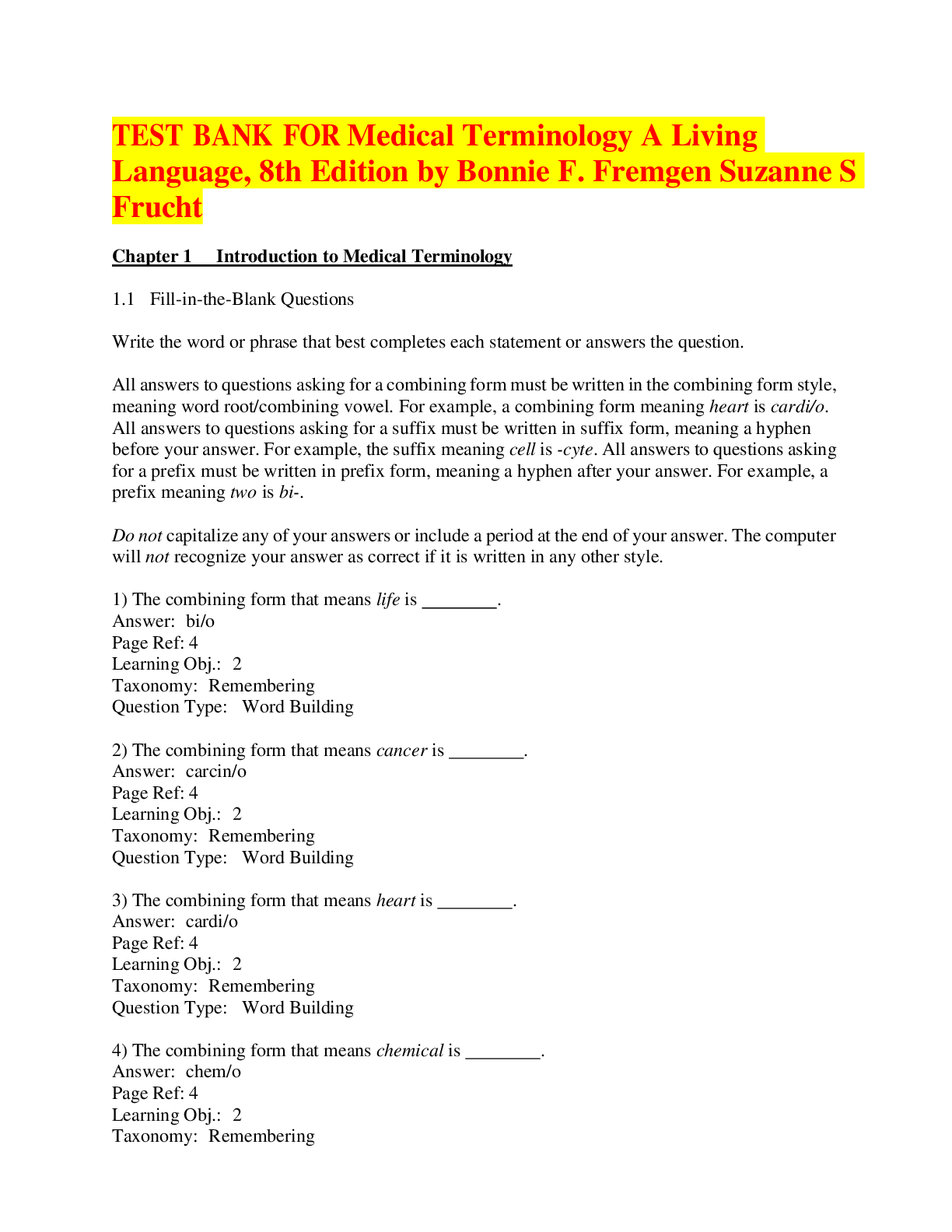
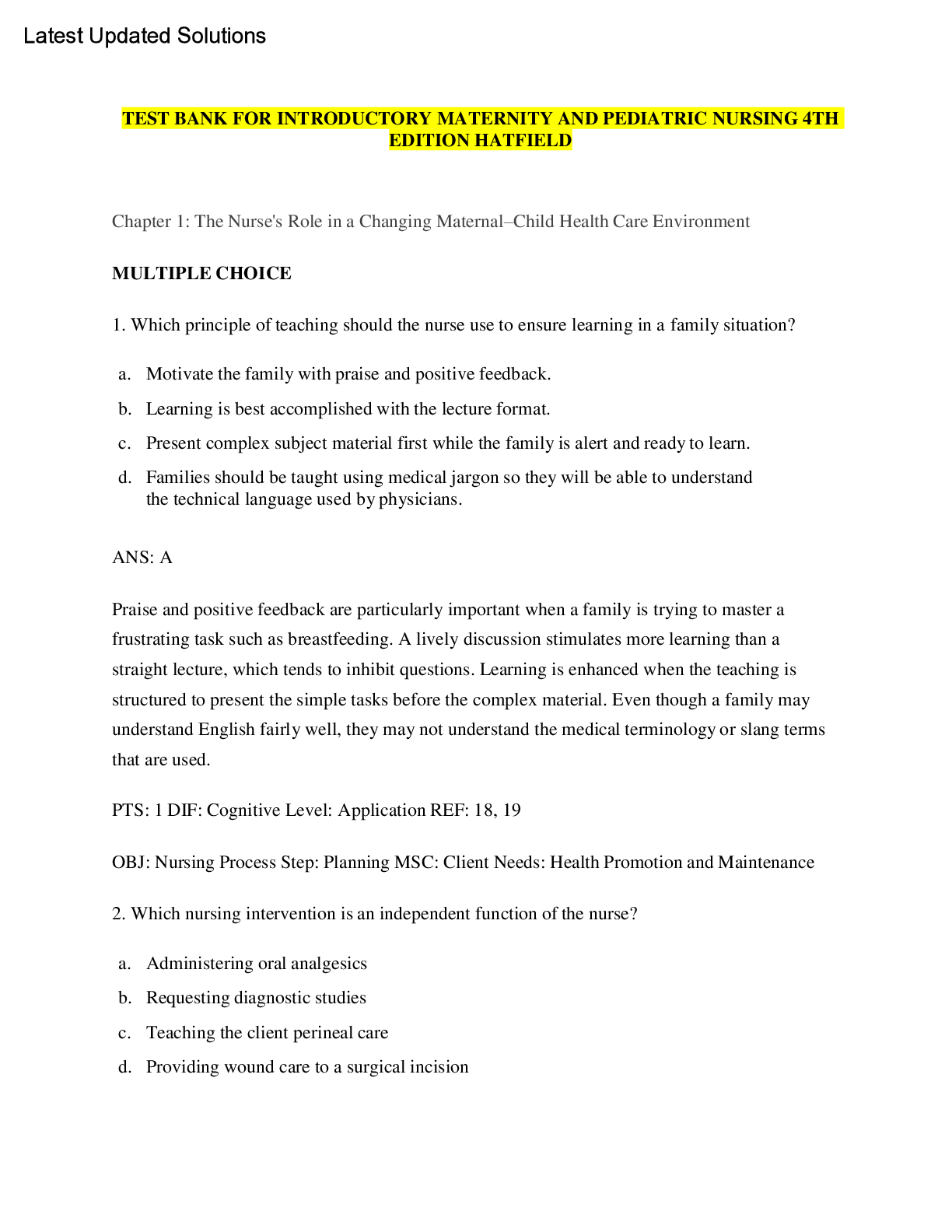
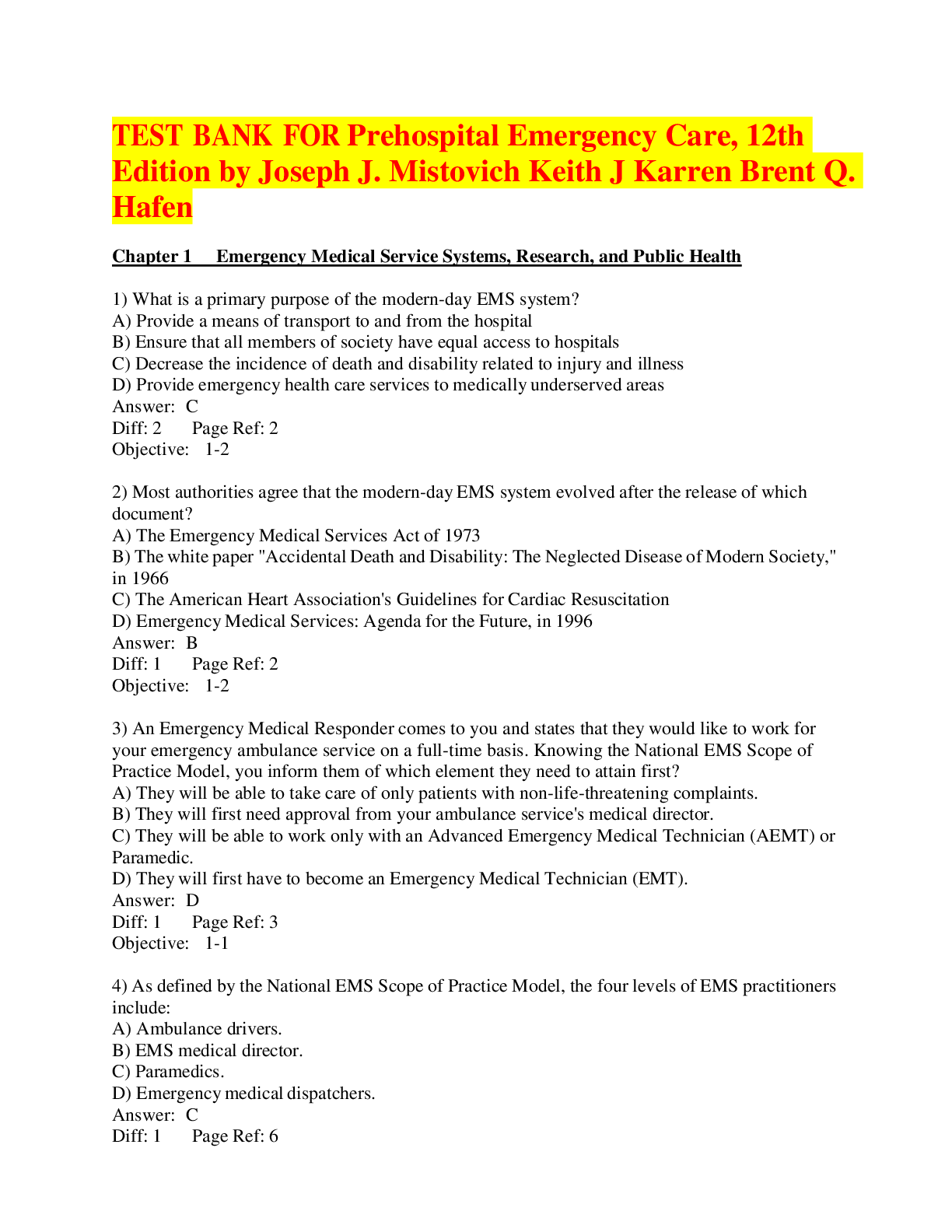


_compressed.png)
.png)
.png)

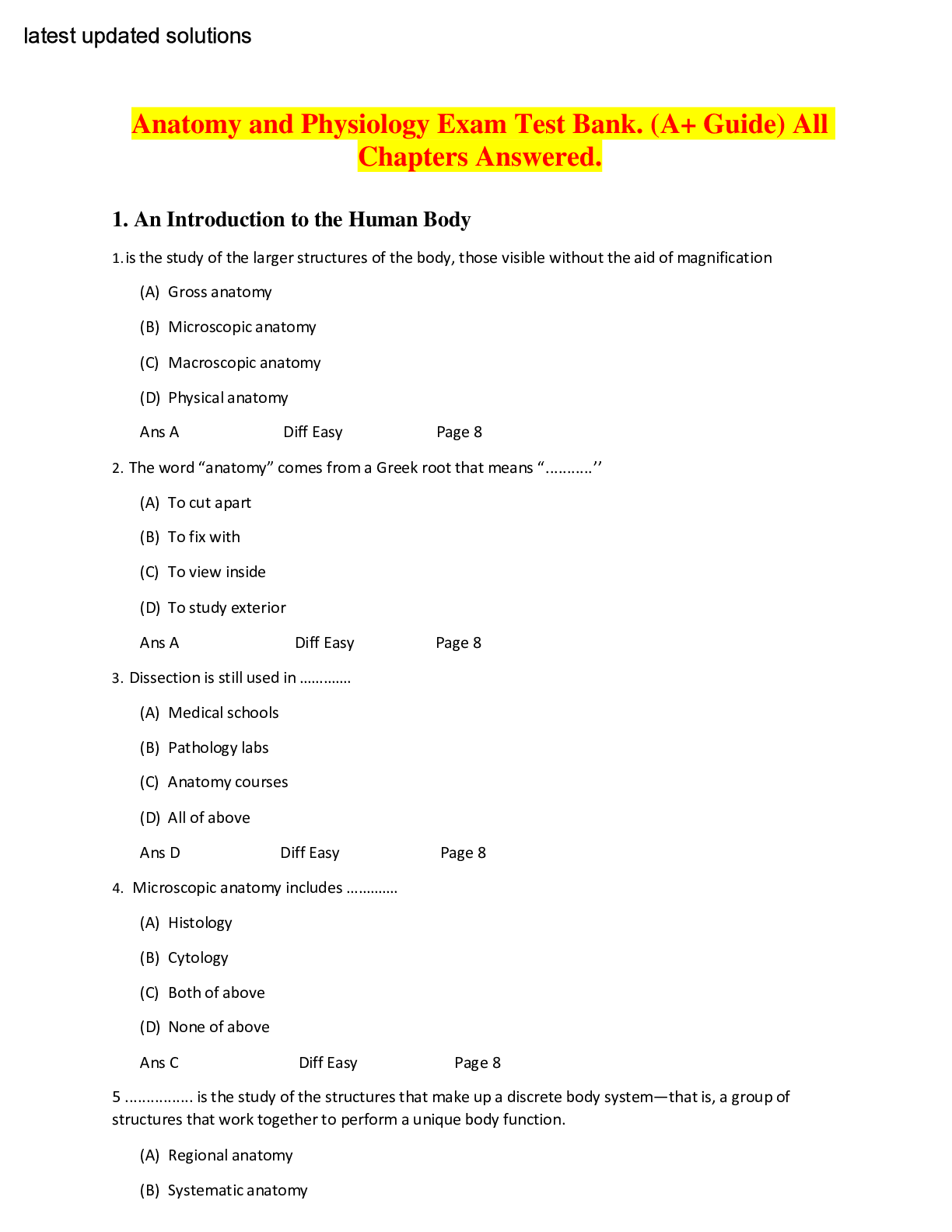
.png)



